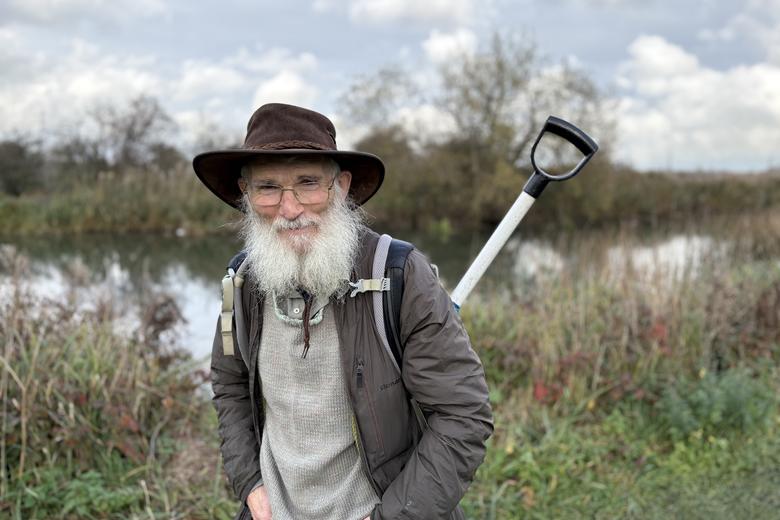THE PHYSICIST BEHIND NET ZERO

THE PHYSICIST BEHIND NET ZERO
Professor Myles Allen recently spoke at an alumni event in Singapore about 'geological net zero' and the radical mindset shift needed among policymakers to solve climate change
Published: 28 May 2025
Share this article
Professor Myles Allen is such a powerful advocate for the environment that he was dubbed ‘the physicist behind net zero’ by the BBC.
He is regularly asked for comment on all things related to climate and weather, but Oxford’s Professor for Geosystem Science is a scientist, not an activist – despite more than two decades of work on climate change.
Professor Allen recently spoke about his research to Oxford alumni in Singapore. You can view his talk in full here and get a very brief summary below.
It's the total amount of CO₂ emitted since pre-industrial times – not the rate of emissions in any given year – that determines global temperature rise, which is why emissions need to fall to net zero to halt global warming.
Humanity is now certain to generate more CO₂ by burning fossil fuels than can safely be dumped into the atmosphere, so stopping global warming means not just reducing the rate of fossil fuel use, but in safely and permanently disposing of that excess. Most of it will almost certainly need to be reinjected back into the Earth’s crust – nature-based solutions like tree planting can help store carbon in the short term, but their capacity is limited and, as the world warms, prone to reversal.
So, Allen argues, we need to aim for ‘geological net zero’, scaling up carbon capture and storage (CCS) and engineered direct air capture (DAC) technologies so that we are reinjecting carbon, as CO₂, back underground at the same rate that we extract it soon after mid-century. Using emissions scenarios from the Intergovernmental Panel on Climate Change, Allen shows that the net geological carbon intensity of ongoing fossil fuel use – that is, the fraction of CO₂ generated that is not permanently restored to the geosphere in this way – must decline to zero by 2055 to halt warming in time to meet the goals of the Paris Agreement.
He argues that capturing and storing 10% of fossil carbon by 2035, 50% by 2045 and 100% by 2055 is both technically achievable and economically manageable, with the impact on fuel prices comparable to recent fluctuations, rising predictably over 30 years by approximately $0.60 per litre of petrol.
So, solving climate change does not, after all, require daunting social change, but it does require a radical mindset shift among climate policymakers. We must make responsible carbon disposal integral to the social license to extract and sell fossil fuels. Allen summed up with a quote attributed to Sheikh Yamani, the Saudi Energy Minister in the 1970s: 'The stone age ended before we ran out of stones, the oil age will end before we run out of oil...' He then added his own point: global warming must end before we stop using fossil fuels.
Watch the full talk below:
https://www.youtube.com/embed/Dkgk7JSwWbk?si=fACLlb94UoIhVg86Professor Myles Allen
Head of Atmospheric, Oceanic and Planetary Physics, Department of Physics; Professor of Geosystem Science, School of Geography and the Environment. Fellow of Linacre College. Originally a student at St John's College. Myles featured on the BBC’s The Life Scientific as 'the physicist behind net zero', was awarded a CBE 'for services to climate change attribution, prediction and net zero' and is a Fellow of the Royal Society.
Lead graphic: Getty Images Ltd. Portrait of Professor Myles Allen, credit Myles Allen.















